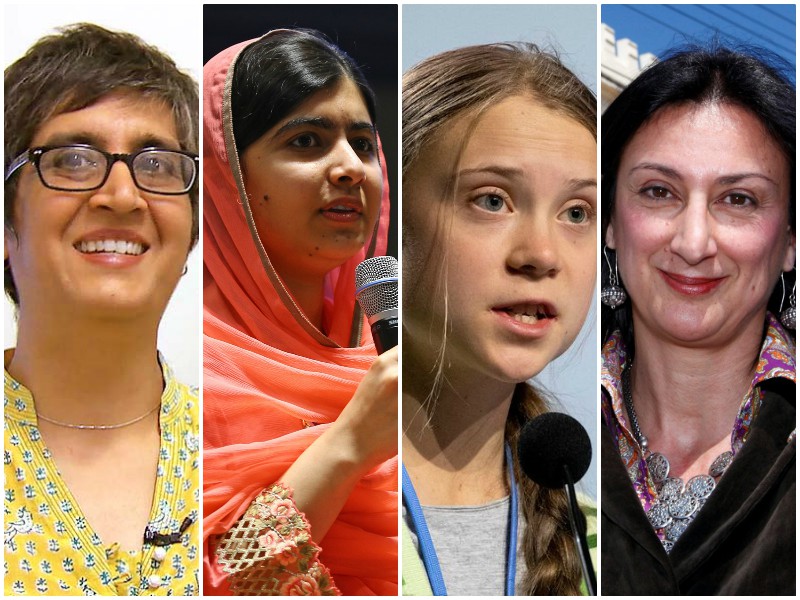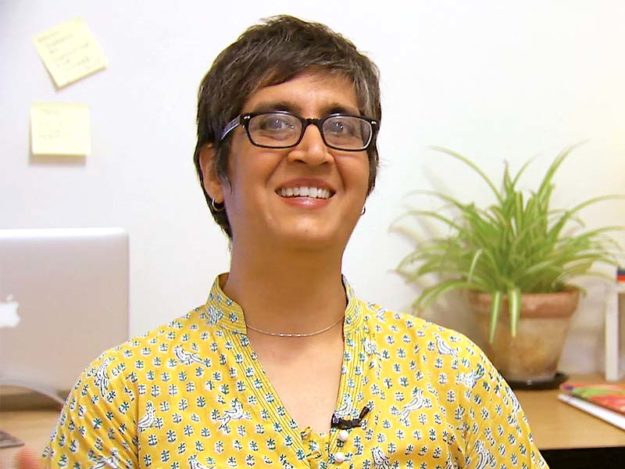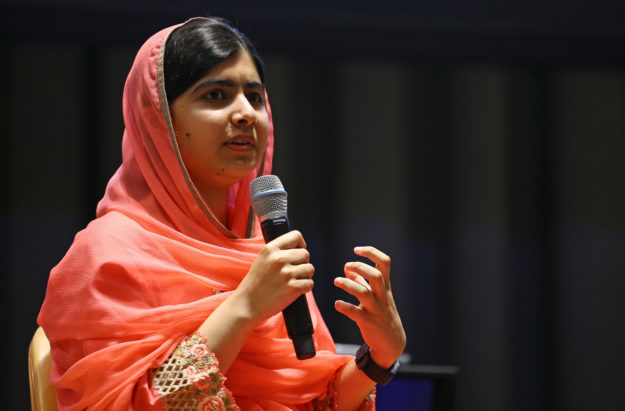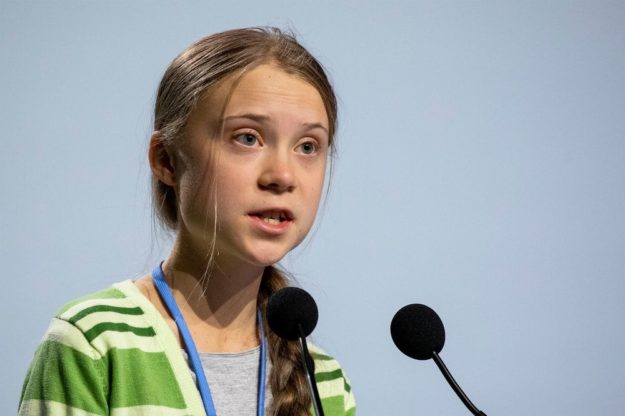
Iss rape wape se, azaadi
Iss honour killing se, azaadi
Iss slut shaming se, azaadi
Harassgi se, azaadi
Jeevan jeene ki, azaadi
Parhne likhne ki, azaadi
Aurat kya mange? Azaadi
It is the twilight of this decade and a video is doing the rounds, of a young woman in red chanting these words to the beat of a drum. The video is from the Student Solidarity March held on March 29 across Pakistan, calling for the restoration of student unions but more than that, calling for freedom to think, debate, dissent.
There is another video going viral, this one from halfway across the world. A group of women in Chile moves choreographed to words that we may not be able to understand but the meaning of which is impossible to mistake. It is a song of protest performed on the International Day for the Elimination of Violence Against Women and the anger is palpable. The chorus goes:
Y la culpa no era mía, ni dónde estaba, ni cómo vestía
It wasn’t me that was to blame, nor where I was, nor how I dressed.
El violador eras tú. El violador eres tú.
The rapist was you. The rapist is you.
These two videos of two protests in different parts of the world, recorded only a few days apart, in some ways encapsulate the last decade. This has been the decade of #MeToo and #Time’s Up. The decade of Malala Yousufzai and Greta Thunberg of Sabeen Mahmud and Daphne Caruana Galizia.
Of Aurat March and Qandeel Baloch and Jyoti Singh. Of Sana Mir and Hajra Khan. It has also been the decade of social media activism and activism amplified through social media (two very different things), of the globalisation of local movements and the localisation of global ones.
In Pakistan and beyond, women have spoken out, fought back and started important and long overdue conversations. They have harnessed the power of social media and used it not only to have conversations online but to organise and transfer some of those conversations offline to other spaces. Access to education and to public space, freedom from violence and from society’s double standards – these are just some of the issues that have finally made their way into the drawing rooms and mainstream narratives of Pakistani society.

Ten years ago, it would have been inconceivable to talk about sexual harassment, child sexual abuse or why women should or shouldn’t be at dhabas in the way we are able to do and are doing now.
Women have been leading not just what are traditionally recognised as women’s struggles but are at the forefront of wider social justice movements in growing recognition, that equality for one is not possible without equality for all.
Gender justice is not possible without economic, racial, religious and environmental justice. Gender inequality affects different women in different ways and women are disproportionately affected by poverty, climate change, racism, and many of the other challenges facing us today. It has therefore been heartening to see women take centre stage at the Student Solidarity March, with the demands for women’s rights on campuses being clearly and loudly articulated.
Of course, not all of these conversations have happened in a constructive way or come from a place of good intentions. Women have faced consequences for speaking out as our patriarchal society has slapped back at those who have attempted to challenge it. They have been ridiculed, laughed at, stigmatised and have sometimes paid with their lives.

Malala is a prime example of this. Shot at for speaking out against the Taliban, the hate she continues to receive from the country she so proudly represents is difficult to stomach. One of Pakistan’s only two Nobel Prize winners, she is constantly accused of bringing negative attention to Pakistan when in fact she represents the best of us.
The hate she receives exposes something deep within our society. This becomes even more glaring when you dissect the reaction Pakistan had to another woman. A woman very different from Malala in every way but who was similarly silenced - in this case, silenced forever - because she threatened to destabilise the core dynamics of class, gender, and respectability in our society.
I am talking about Qandeel Baloch. Qandeel, who went from being ridiculed and made fun of by the ‘respectable’ middle class and elite for her accent one day to dead the next, killed by her brother in the name of honour. The brother she was supporting through the work he killed her over.
What followed was even worse in some ways - an outpouring of anger not at the man or the social structures that killed her but at anyone - mostly women - who tried to honour her memory or start a conversation about what she had brought into the open about our society.
And this is where Malala and Qandeel Baloch come together. Two women, poles apart. One just a child when attacked for simply wanting an education, a basic and mostly non-controversial right. The other, an adult woman who probably represented the opposite of what Pakistan considers respectable, a woman who decided to take control of her body and use the system for her own benefit instead of being used by that system. One, hardly ever seen without a dupatta on her head, the other, known for YouTube videos and selfies deemed ‘vulgar’ and ‘immoral’.
Both hated. Both demonised. Both disowned.

It was never about Malala and it was never about Qandeel Baloch. It was about women raising a voice and stepping out of their place in society, whether that place is of gender or class. The accusations of bringing negative attention to Pakistan are the defensive reactions of a society unwilling to have a mirror held up to it by women who’ve suffered at its hands.
This decade is not the first time that women have fought for our rights and been at the forefront of social change. South Asian history is riddled with strong, courageous, defiant women who stood against all kinds of injustices from colonial rule to Ziaul-Haq. But this decade has seen a rejuvenation of women's activism in Pakistan and across the world in a way that had been absent in preceding years.
It also seems to have had more impact more quickly and these conversations have become mainstreamed in a way not seen previously. This is partly due to the tools of the digital age. The same tools, of course, are also used to silence those speaking out and it is very much a double-edged sword.
That is not to say that all protests, all movements, all conversations in the past ten years have been faultless. No movement for change is ever perfect and critique from outside and from within is essential in pushing it to be better. The voices raised have also not been for nothing and not all of the debate has been toxic and unconstructive. We may not all agree with them but we owe them for challenging us, provoking discussion and fighting for a more just society.
Zaimal Azad has completed her MSc in Gender, Policy and Inequalities from London School of Economics. She currently works in the hate crime field in the UK. She tweets @ZaimalA
Have something to add to the story? Share it in the comments below.
1719315628-0/BeFunky-collage-(8)1719315628-0-405x300.webp)


1731329418-0/BeFunky-collage-(39)1731329418-0-165x106.webp)













COMMENTS
Comments are moderated and generally will be posted if they are on-topic and not abusive.
For more information, please see our Comments FAQ